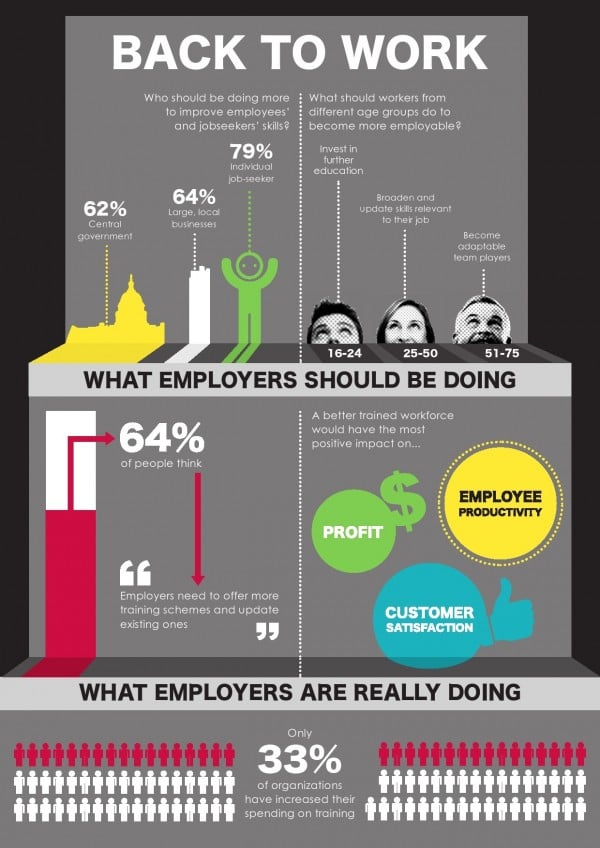By Jim Wynn
Unemployment is currently a burning issue in this country as it is across the globe. Discussions about how best to create jobs feed our headline news fuel fierce political debate and will be a key factor in determining the outcome of our presidential election in November.
Although unemployment in the US has fallen nearly 2 percentage points from its peak of 10 percent in 2009, the fight to create sustainable, well-paid jobs is far from over. [1]
Yet when asked, employers say that it is not jobs that are in short supply – it is talented workers.
As Peter Cappelli, a professor at Wharton business school, noted in a recent interview with the Financial Times, “A generation ago, employers would hire and train employees. Now, they demand trained workers. The skills gap is largely a figment of companies’ imagination. They cannot find workers to do the very specific tasks they want done. That is very different from not being able to find capable workers.”
This week Promethean released results from a survey conducted by The Economist Intelligence Unit (EIU) showing that investment in training helps companies to increase their productivity significantly and creates a skilled workforce. The survey, “Training Out of the Recession,” also reported that a better trained workforce improves customer satisfaction and helps drive sales.

The skills required by today’s workforce are profoundly different to those that were needed even a decade ago. Too often corporate training programs are designed to meet the needs of yesterday, rather than those of today and tomorrow.
Much of the current training provided by employers inadequately prepares workers for the modern workplace. Nearly two-fifths of US respondents say that training at their organization is poor at driving innovation among employees. This evidence points to a growing need to modernize how we train current and future workers.
Modernizing training might include using real-time interactive training tools or delivering training to meet multiple styles of learning – visual, auditory and kinesthetic. As teams become leaner and more geographically dispersed, training environments will need to encourage dialogue, create conversation and provide immediate feedback.
Collaboration is embedded in all the technology around us and is essential in the 21st Century. If we are going to use training to help dig ourselves out of the recession, training tools must have the ability to capture, retain and share brainstorming sessions and improve collaborative skills. Technology can help personalize training as the one-size fits all approach of yesteryear is no longer appropriate. The EIU survey found that corporations, education institutions and government agencies all have a pivotal role to play in implementing such training.
But employees have a role to play too. A significant number of respondents to the survey believe college graduates and job seekers need be more proactive in preparing themselves for a challenging market.
Further education should be a top priority for young workers, age 16 – 24, according to 46 percent of respondents. And, some 50 percent stated that employee’s between 25 – 50 should have a broad range of up-to-date skills to be more competitive in the job market. Furthermore, 53 percent think mature workers (51-75 year olds) need to become more adaptable, flexible, and need to be better at being team players.
Instinctively, as budgets are hit hard, businesses become focused on short-term returns. They cut their investment in training, thereby undermining their future competitiveness. Nearly three-fifths of those polled in the US say that current economic conditions should not be an obstacle to organizations taking steps to improve their workforce. Nearly all US respondents (93 percent) believe that organizations should offer a multitude of in-house and external training programs to employees. However, they don’t think that the efforts of companies alone are sufficient: 82 percent believe employees ought to invest in training at their own expense.
If we are going to pull ourselves out of recession, we need to look very closely at the role training plays in stimulating economic growth, increasing productivity, and improving overall customer and employee satisfaction.
Job training can fuel economic growth – but only if all parties share responsibility and work as one in pursuit of a common goal.
For the full survey results click here.
– Jim Wynn, Chief Education Officer, Promethean
[1] US Bureau of Labor Statistics
__________________________________________________________________________________
Jim Wynn joined Promethean in April 2010 as Chief Education Officer, responsible for the company’s education strategy. Prior to joining Promethean Mr. Wynn led the Public Sector team and Education in the Emerging Markets Public Sector Practice of the Cisco Internet Business Solutions Group (IBSG), where he advised government and public sector organizations on the intelligent use of ICTs to transform education. Previously Mr. Wynn held various positions including Head Teacher of two secondary schools in the UK, where he pioneered the use of ICT, Head of Research at RM Plc, and Partners in Learning lead for EMEA at Microsoft. Mr. Wynn holds a first class degree in Mathematics from the University of Hertfordshire. He is a director of the 21st Century Learning Alliance Board in the UK.